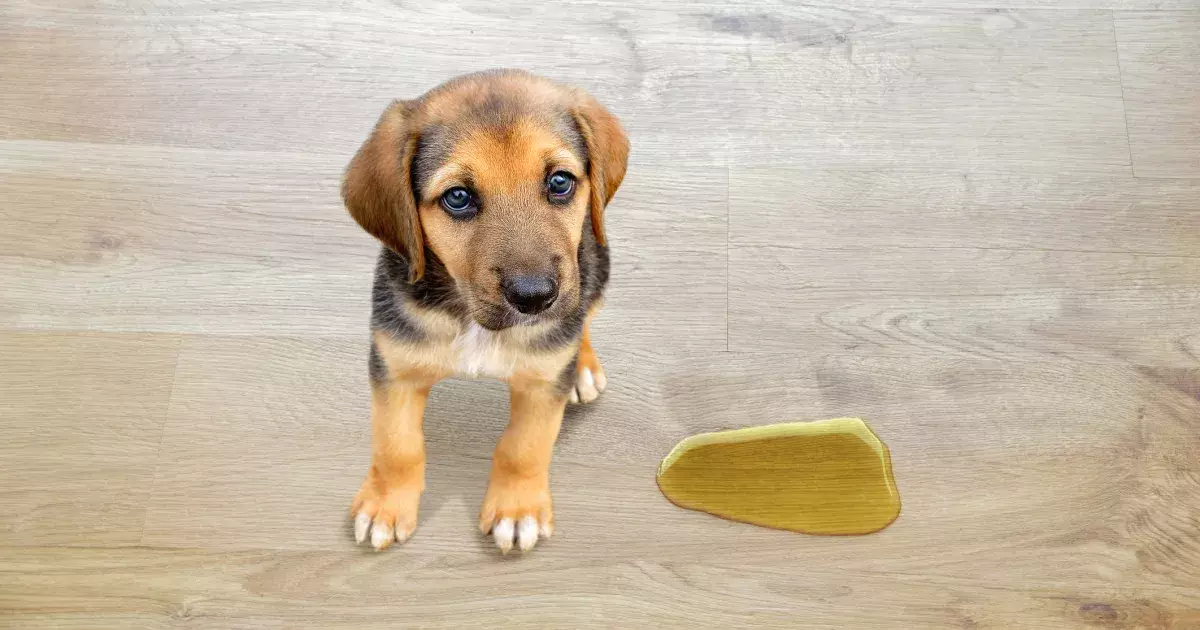As devoted dog owners, we often find ourselves basking in the joy of our furry companions. However, these moments of bliss can be punctuated by uncomfortable realities, especially relating to potty training. One distressing issue that can arise is involuntary urination—an event that not only disrupts the harmony of our home but can also cloud the bond we share with our pet. Understanding that accidents happen is one thing, but coping with unexpected peeing outside of scheduled potty breaks can evoke deep concern and frustration. Recognizing the roots of this behavior is pivotal, as it allows us to address the problem effectively and compassionately.
One of the most prevalent reasons behind involuntary urination in dogs is linked to medical conditions, with urinary tract infections (UTIs) being a primary culprit. UTIs cause discomfort and a heightened urgency to urinate, which may result in your dog involuntarily leaking urine. Symptoms such as frequent urination, blood-stained urine, or excessive licking of the genital area signal an urgent need for veterinary attention.
Beyond UTIs, hormonal imbalances present another potential issue. Dogs that have been spayed or neutered may experience a dip in estrogen or testosterone levels that weakens the bladder muscles. As the dog ages, even the most disciplined of pets may struggle with bladder control due to the natural deterioration of muscles. Senior dogs also face the risk of cognitive decline, such as canine dementia, which can exacerbate the problem.
In addition to medical causes, the emotional landscape of a dog’s behavior is crucial to consider. Some dogs experience involuntary urination as a response to excitement or anxiety. This behavior is particularly prevalent in puppies and less secure adults who have not yet mastered their bladder control. Such scenarios require understanding and patience, as dogs may not respond positively to harsh discipline. Instead, managing their emotions through gradual exposure to triggers, using positive reinforcement, can foster a sense of safety for your pet.
When faced with episodes of involuntary urination, consulting a veterinarian is not just advisable—it’s essential. A professional evaluation can uncover underlying medical issues and result in tailored treatment plans, including diagnostic tests that identify infections or hormonal imbalances. Addressing these concerns swiftly can prevent an escalation of the problem and pave the way towards a more manageable situation.
Regardless of the underlying reasons, resuming effective potty training techniques is imperative. Establishing a consistent walking and bathroom break schedule enables dogs to relieve themselves with regularity. Even well-trained pets may occasionally need a refresher on the rules. Ensuring that they are encouraged to relieve themselves outside, combined with timely reminders, cultivates the right habits and expectations.
For dogs demonstrating nervousness or excitement that translates into unwanted urination, proactive strategies must be implemented. Gradual exposure to the sources of anxiety, combined with reward-based training systems, can nurture better bladder control. Employing techniques that focus on socializing and desensitization can transform their response to exhilarating moments, fostering confidence and composure.
While working towards long-term solutions, utilizing belly bands or protective diapers can serve as a practical short-term fix for dogs that struggle significantly with involuntary urination. These devices can absorb excess moisture, thereby protecting furniture and flooring from unwelcome accidents. However, it is important to approach this measure as a temporary solution; they should not replace ongoing training and behavioral work.
In the meantime, ensuring your home is prepared for potential accidents can foster a more serene living environment. Puppy pads, waterproof furniture covers, and effective pet-friendly cleaning supplies can help maintain hygiene and minimize stress. Before long, a clean environment will complement your training efforts, solidifying a routine that prioritizes both you and your dog’s well-being.
Each instance of involuntary urination is a complex interplay of medical, emotional, and behavioral factors. By approaching this challenge with empathy, understanding, and effective strategies, pet parents can turn hurdles into opportunities for growth and connection with their canine companions. Your determination to learn and adapt will not only bolster your efforts but will also enhance the happiness and quality of life for you and your furry friend.

